Nothing special here. It’s just a blog post for summarising my algorithm learning course. Probably this was taught in the University but I don’t remember anything, I have no idea about its definition and applications until I take this course.
Heap-ordered Binary Tree
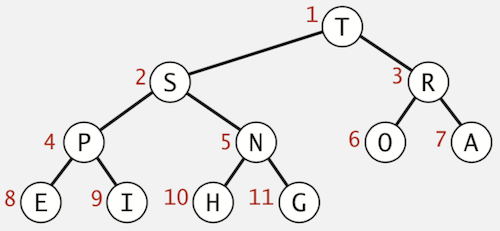
- Each node represents a key
- Parent’s key is not smaller than children’s keys
Array Representation
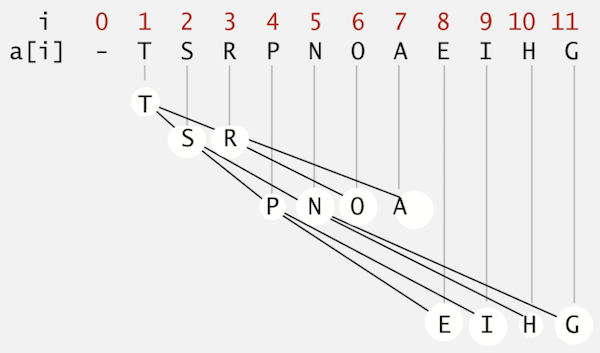
- Indices start at 1.
- Take nodes in level order.
- No explicit links needed!
- Largest key is a[1], which is root of binary tree
- Can use array indices to move through tree
- Parent of node at k is at k/2
- Children of node at k are at 2k and 2k+1
Promotion in a heap
- Scenario: Child’s key becomes larger key than its parent’s key.
- To eliminate the violation:
- Exchange key in child with key in parent.
- Repeat until heap order restored.
- In the below image, the 5th item
Tis not in the correct orderTis larger thanP(its parent), exchangeTis still larger thanS(its parent), exchange- Finally,
Tis in the correct order
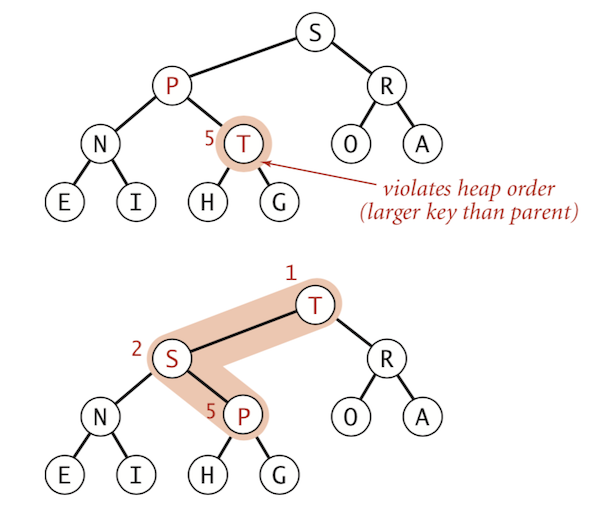
private void swim(int k) {
while (k > 1 && less(k/2, k)) {
exch(k, k/2);
k = k/2;
}
}
Insertion in a heap
- Add node at end, then swim it up.
- Cost: At most
1 + lgNcompares.
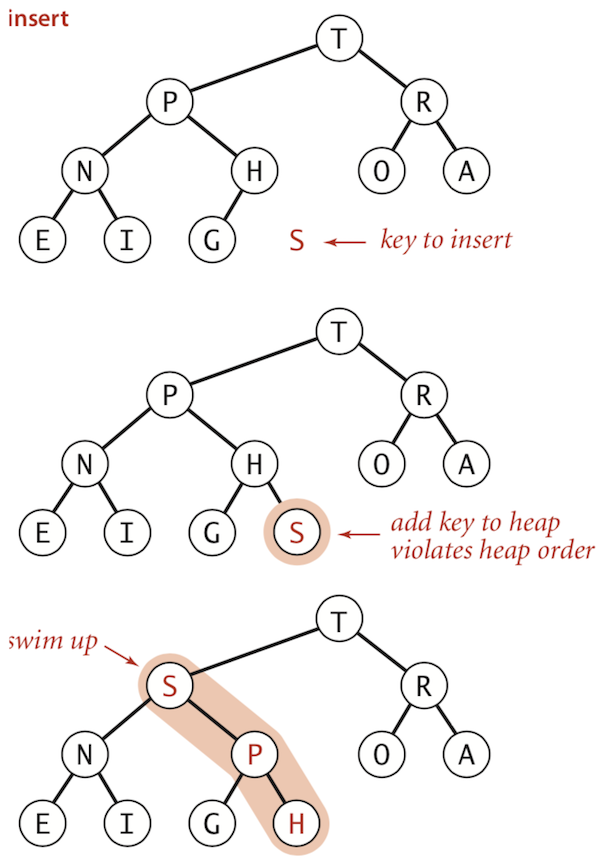
public void insert(Key x) {
pq[++N] = x;
swim(N);
}
Demotion in a heap
- Scenario: Parent’s key becomes smaller than one (or both) of its children’s.
- To eliminate the violation:
- Exchange key in parent with key in larger child.
- Repeat until heap order restored.
- In the below image, the 2nd item
His not in the right orderHis smaller than its children, exchange with the larger childSHis still smaller than its children, exchange with the larger childN- Finally,
His in the correct order
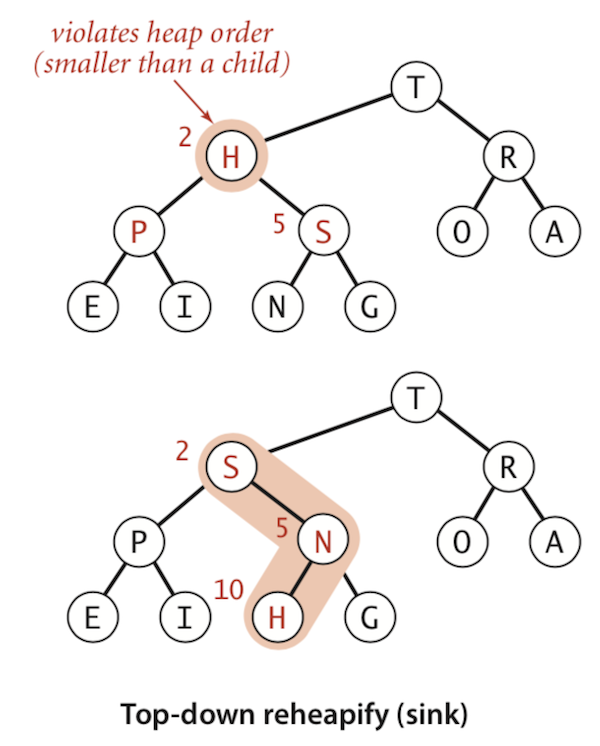
private void sink(int k) {
while (2*k <= N) {
int j = 2*k;
// children of node at k are 2k and 2k+1, decide which one is larger
if (j < N && less(j, j+1)) j++;
// when the item is in the right order, stop
if (!less(k, j)) break;
// otherwise, exchange
exch(k, j);
k = j;
}
}
Delete the Maximum in a heap
- Exchange root with node at end, then sink it down.
- Cost: At most
2 lgNcompares.
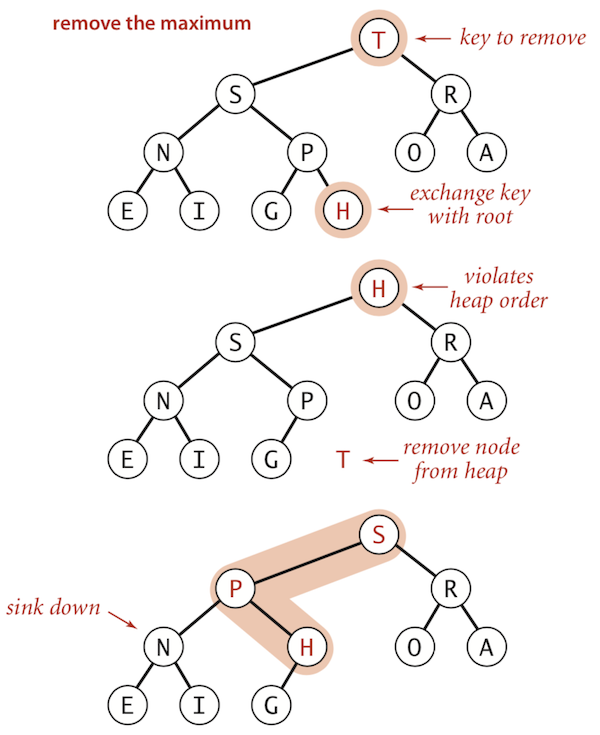
public Key delMax() {
Key max = pq[1];
exch(1, N--);
sink(1);
// prevent lotering
pq[N+1] = null;
return max;
}
